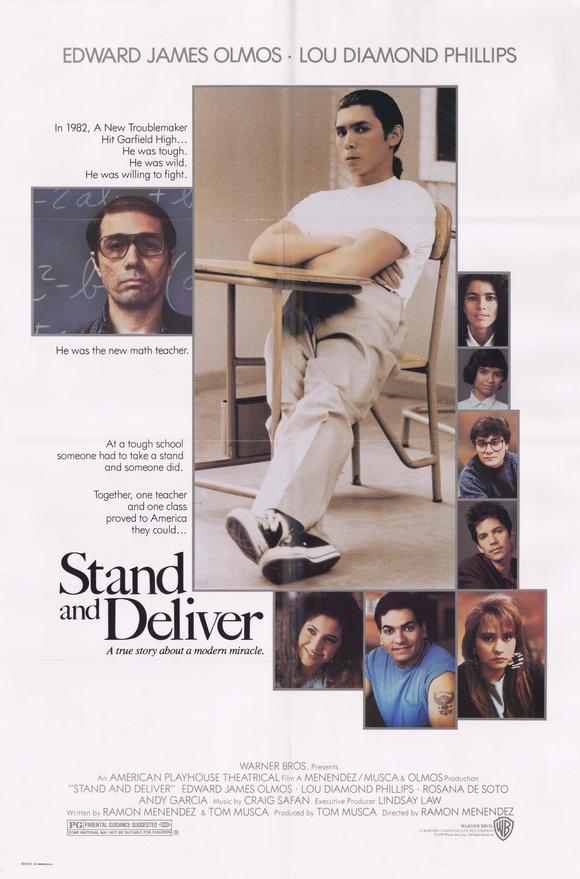Robert Rodriguez and Ramón Menéndez have cemented their status as Latino luminaries in American film history.
The Mexican-American Rodriguez’s El Mariachi and the Cuban-born Menéndez’s Stand and Deliver have been selected as this year’s additions to the National Film Registry of films for preservation by the Library of Congress for “their enduring significance to American Culture.”
El Mariachi (1992): Directed, edited, co-produced and written in a short two weeks by then-film student Rodriguez for only $7,000, El Mariachi became an insta-hit on the film festival circuit. After being picked up for distribution, the film helped usher in the independent movie boom of the early 1990s. El Mariachi is an energetic, highly entertaining tale of an itinerant musician who arrives at a Mexican border town during a drug war and is mistaken for a hit man who recently escaped from prison. The story, as film historian Charles Ramirez Berg has suggested, plays with expectations common to two popular exploitation genres—the narcotraficante film, a Mexican police genre, and the transnational warrior-action film, itself rooted in Hollywood Westerns. Rodriguez’s success derived from invigorating these genres with creative variants despite the constraints of a shoestring budget. Rodriguez has gone on to become, in Berg’s estimation, “arguably the most successful Latino director ever to work in Hollywood.”
Stand and Deliver (1988): Based on a true story, Stand and Deliver stars Edward James Olmos in an Oscar-nominated performance as crusading educator Jaime Escalante. A math teacher in East Los Angeles, Escalante inspired his underprivileged students to undertake an intensive program in calculus, achieve high test scores and improve their sense of self-worth. Co-produced by Olmos and directed by Menéndez, Stand and Deliver became one of the most popular of a new wave of narrative feature films produced in the 1980s by Latino filmmakers. The film celebrates in a direct, approachable, and impactful way, values of self-betterment through hard work and power through knowledge. Menéndez’s first feature film won six IFP Spirit Awards including Best Picture, Best Director and Best Screenplay.
In all, 25 movies were selected from a lost of more than 2,200 titles nominated this year, including Fake Fruit Factory (1986), a documentary that takes an expressive, sympathetic look at the everyday lives of young Mexican women who create ornamental paper maché fruits and vegetables.


